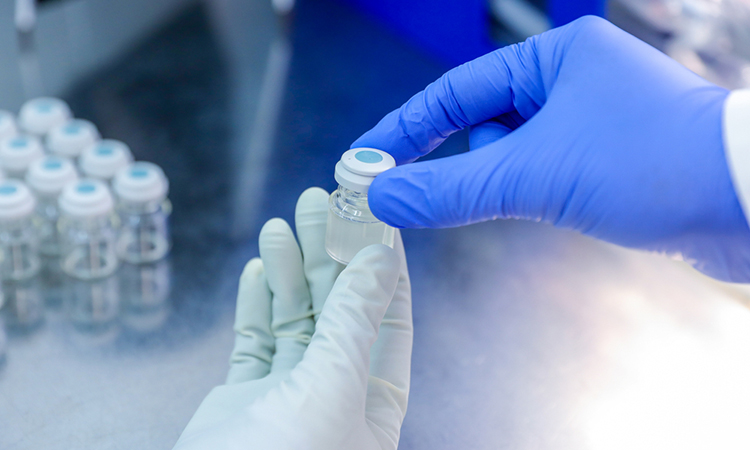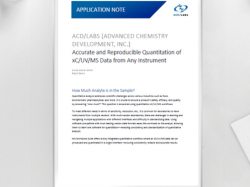Why cold chain requirements are not holding COVID-19 vaccines back
Posted: 18 December 2020 | Victoria Rees (European Pharmaceutical Review) | No comments yet
Despite the stringent storage conditions required for Pfizer and BioNTech’s COVID-19 vaccine, the need for a return to normal life has levelled the playing field for all candidate prophylactics against SARS-CoV-2.


With BNT162b2, the Pfizer and BioNTech COVID-19 vaccine, having gained regulatory approval from the UK’s Medicines and Healthcare products Regulatory Agency (MHRA)1 and the US Food and Drug Administration (FDA),2 the world is now one step closer to ending the current pandemic. Now, the next stage for the companies will be to successfully distribute and deliver the vaccine.
…the pharmaceutical industry can respond rapidly to a pandemic and innovate”
However, the nature of this vaccine means that it needs specific storage requirements; this is because it is formulated to contain messenger RNA (mRNA) that instructs human cells to synthesise the SARS-CoV-2 Spike (S) protein, which the coronavirus uses to enter host cells. This, in turn, enables the body to generate an immune response to the virus and remain protected. Due to the rapidity with which enzymes can break down RNA, the vaccine needs to be stored at temperatures of around -70°C.3 It can, however, be kept at 2° to 8°C for five days.
In comparison, the Moderna COVID-19 vaccine requires temperatures of -20°C to remain stable for up to six months. The company highlights that it can be stored at 2° to 8°C in a standard or medical refrigerator for up to 30 days. If kept at room temperature, the vaccine can also be used for up to 12 hours.4 These low temperatures are required because this prophylactic has also been formulated with mRNA, but Moderna has not yet revealed why its prophylactic can be kept at a higher temperature than Pfizer’s.
Another vaccine that has been submitted for regulatory review is AZD1222, developed by the University of Oxford and AstraZeneca. Unlike the other two vaccines, this prophylactic uses a replication-deficient chimpanzee viral vector based on a weakened version of an adenovirus that contains the genetic material of the SARS-CoV-2 virus S protein. After vaccination, the S protein is produced, priming the immune system to attack SARS-CoV-2 if it later infects the body.5 Due to this different formulation, the vaccine only needs to be kept in normal refrigerated conditions: 2° to 8°C. A spokesperson from AstraZeneca said that this was a consideration during the development stages, to ensure that it could be accessible everywhere.
As with all vaccines, specific storage conditions are required, although some are easier to achieve than others. “Any temperature-controlled drug product that is out of its required temperature will lose its benefits eventually. Drug products can often be stored for weeks or months at their required temperature. This required temperature varies by pharmaceutical, but deep-frozen materials, if not protected, will quickly depart from their required temperature range and lose their efficacy,” explained Adam Tetz, Director of Worldwide Marketing at Peli BioThermal.


Cold chain lorry
The need for temperature control also impacts how the vaccines will be transported for delivery. Sean Marett, Chief Business and Commercial Officer at BioNTech, explained that the company has formed two “highly effective” partnerships to help distribute BNT162b2: Fosun in China and Pfizer for the rest of the world. He explained that Pfizer has developed temperature-controlled thermal shippers utilising dry ice6 to maintain the recommended storage conditions for up to 15 days unopened. These thermo boxes can contain between 1,000 to 5,000 doses, which will either be shipped by lorry or plane to the UK. The boxes include a tracker to provide “minute-by-minute” information on the internal temperature before it is distributed to the site of injection. Once delivered, the shipper can be opened and closed twice a day if it is re-iced every five days. “This gives everyone flexibility because you just need the shipper and then you can put it on a table and take the vials out,” said Marett.
However, as Nico Ros, Chief Technology Officer and co-founder of SkyCell, highlighted, although Pfizer may be establishing a robust supply chain, there are still risks: “For the Pfizer vaccine, it is very important to plan and simulate the whole process, including loading procedures and storage facilities to make sure that the containers are maintaining the right temperature. As there is no stockpile of these vaccines, if a shipment of one million doses does spoil, that not only means one million people do not receive a vaccine but that the government will have to reorder the shipment which would place them at the back of the order queue and can result in a long delay.”


Freezers in a hospital
Moderna says that because its vaccine can be stored at -20°C, this is an easier and more established method of distribution and storage than deep freezing, unlike the Pfizer vaccine. It also says that most pharmaceutical distribution companies already have the capability to store and ship products at this temperature using a number of cold warehouses,4 meaning that the company does not have to build any infrastructure and the vaccine can easily enter the supply chain. However, Tetz highlighted that even higher temperatures can still present issues for the supply chain: “The real test to the cold chain will be the scale of vaccines required to immunise the global population. Even for vaccines requiring -20°C, the volume of hundreds of millions of doses required will challenge existing cold chain infrastructure.”
The AstraZeneca vaccine can be distributed using existing logistics and stored in normal refrigerators, meaning it can be kept in doctor’s surgeries and local pharmacies.7 The spokesperson said that the company has agreements in place with governments and multinational organisations; if the vaccine is approved, these parties will be responsible for distribution, co-ordination of refrigerated storage and transportation of the final product. They highlighted that “because the vaccine can be stored at normal refrigeration temperatures, it can be distributed around the world using the normal immunisation-distribution system.”
To ensure the delivery of vaccines to entire populations, the pressure is on the supply chain. Ros said: “The logistics industry is reacting to produce the correct volumes of containers and build up the required infrastructure… if vaccine production ramps up but the logistics of the distribution does not, it will become the bottleneck and vice versa.”


…the world is now one step closer to ending the current pandemic”
While the AstraZeneca vaccine holds the largest share of the orders, it must not be forgotten just how many doses of each vaccine are being produced. Going into the hundreds of millions, with other countries around the world also purchasing doses, it is clear that any cold chain complications are not a limiting factor in governments’ decisions. With Pfizer having handled the logistics network to distribute its vaccine, there is a great collaborative effort that has allowed governments to base their decisions on other factors instead – the low cost and scalability of the AstraZeneca vaccine is likely one of these reasons.12
The dramatic progress seen over the last year has shown that the pharmaceutical industry can respond rapidly to a pandemic and innovate, leading to several strategies to protect people against infection from SARS-CoV-2. Although there are some risks involved with the distribution of COVID-19 vaccines, Pfizer has organised a sophisticated supply chain for the safe delivery of BNT162b2. Although there may be cheaper potential options that are easier to distribute, such as the AstraZeneca vaccine, the global procurement of all vaccines shows that stringent cold chain logistics will not be a negating factor in protecting people against COVID-19.
References
- MHRA approves Pfizer and BioNTech COVID-19 vaccine [Internet]. European Pharmaceutical Review. 2020 [cited 17 December 2020]. Available from: https://www.europeanpharmaceuticalreview.com/news…
- FDA grants Emergency Use Authorization for Pfizer’s COVID-19 vaccine [Internet]. European Pharmaceutical Review. 2020 [cited 17 December 2020]. Available from: https://www.europeanpharmaceuticalreview.com/news…
- Here’s why COVID-19 vaccines like Pfizer’s need to be kept so cold [Internet]. Science News. 2020 [cited 17 December 2020]. Available from: https://www.sciencenews.org/article/coronavirus-covid-19…
- Moderna Announces Longer Shelf Life for its COVID-19 Vaccine Candidate at Refrigerated Temperatures | Moderna, Inc. [Internet]. Moderna, Inc. 2020 [cited 17 December 2020]. Available from: https://investors.modernatx.com/news-releases…
- COVID-19 A. AZD1222 vaccine met primary efficacy endpoint in preventing COVID-19 [Internet]. Astrazeneca.com. 2020 [cited 17 December 2020]. Available from: https://www.astrazeneca.com/media-centre…
- COVID-19 Vaccine U.S. Distribution Fact Sheet | Pfizer [Internet]. Pfizer.com. 2020 [cited 17 December 2020]. Available from: https://www.pfizer.com/news…
- Oxford University breakthrough on global COVID-19 vaccine | University of Oxford [Internet]. Ox.ac.uk. 2020 [cited 17 December 2020]. Available from: https://www.ox.ac.uk/news/2020-11-23-oxford-university…
- UK government secures additional 2 million doses of Moderna COVID-19 vaccine [Internet]. GOV.UK. 2020 [cited 17 December 2020]. Available from: https://www.gov.uk/government/news/uk-government…
- [Internet]. 2020 [cited 17 December 2020]. Available from: https://www.cnbc.com/2020/11/17/covid-vaccines…
- Bloomberg – Are you a robot? [Internet]. Bloomberg.com. 2020 [cited 17 December 2020]. Available from: https://www.bloomberg.com/news/articles…
- AstraZeneca to supply Europe with up to 400 million doses of Oxford University’s vaccine at no profit [Internet]. Astrazeneca.com. 2020 [cited 17 December 2020]. Available from: https://www.astrazeneca.com/media-centre…
- Covid-19: Oxford University vaccine is highly effective [Internet]. BBC News. 2020 [cited 17 December 2020]. Available from: https://www.bbc.co.uk/news/health-55040635
Related topics
Cold Chain Supply, Distribution & Logistics, Drug Supply Chain, Formulation, Supply Chain, Vaccine Technology, Vaccines
Related organisations
AstraZeneca, BioNTech, Fosun, Moderna, Peli BioThermal, Pfizer, SkyCell, UK Medicines and Healthcare products Agency (MHRA), University of Oxford, US Food and Drug Administration (FDA)









